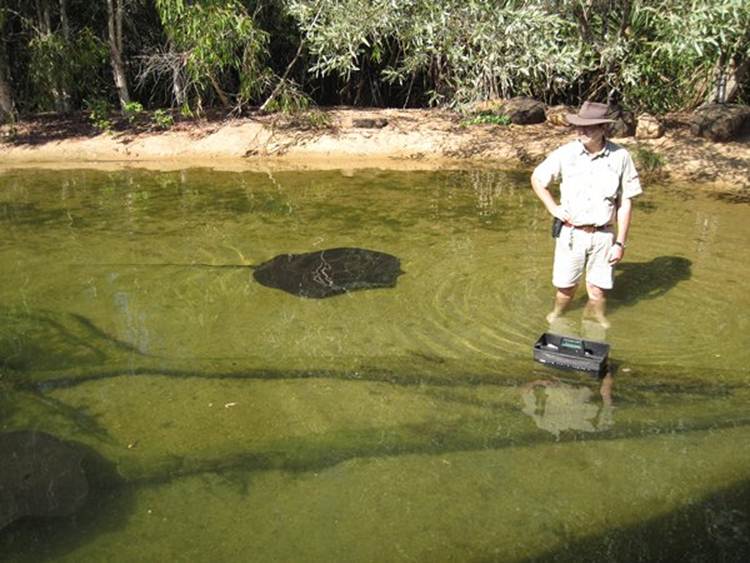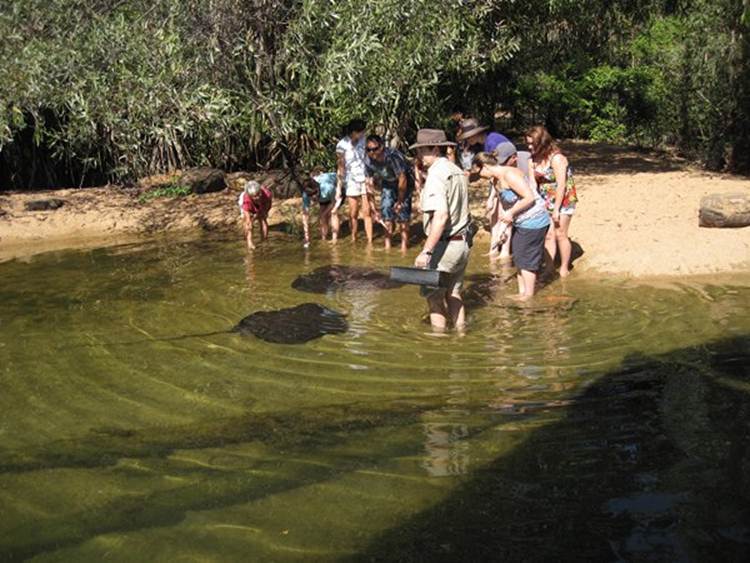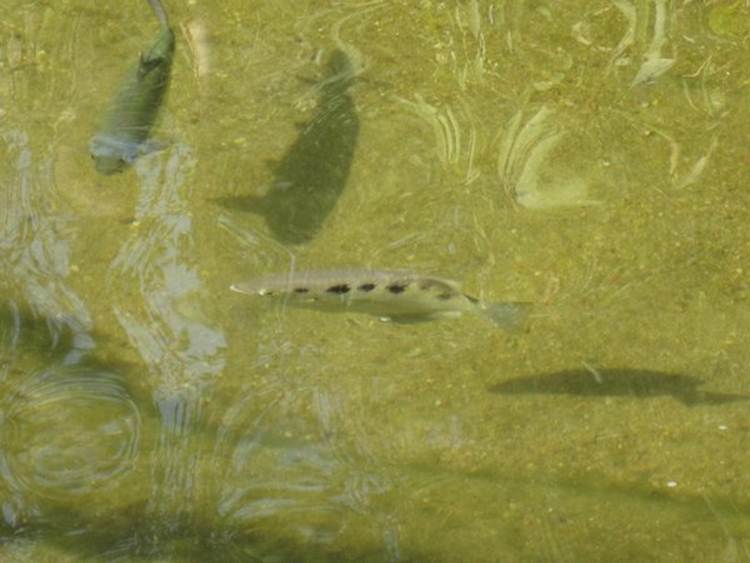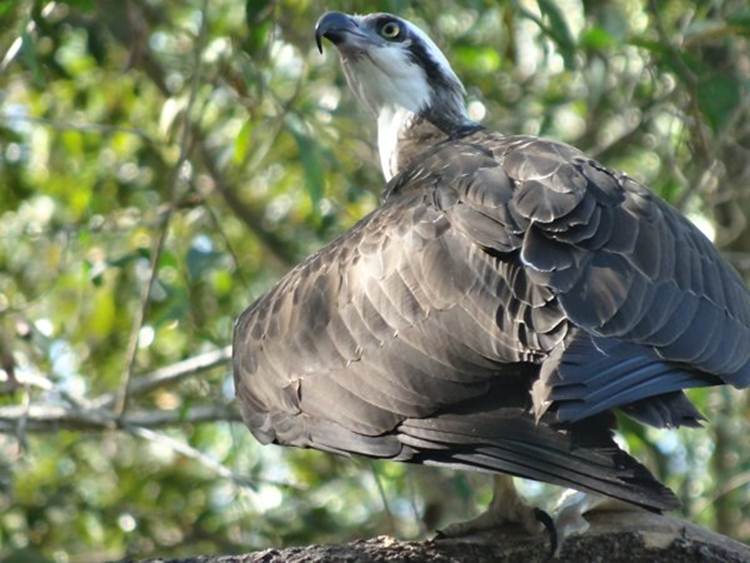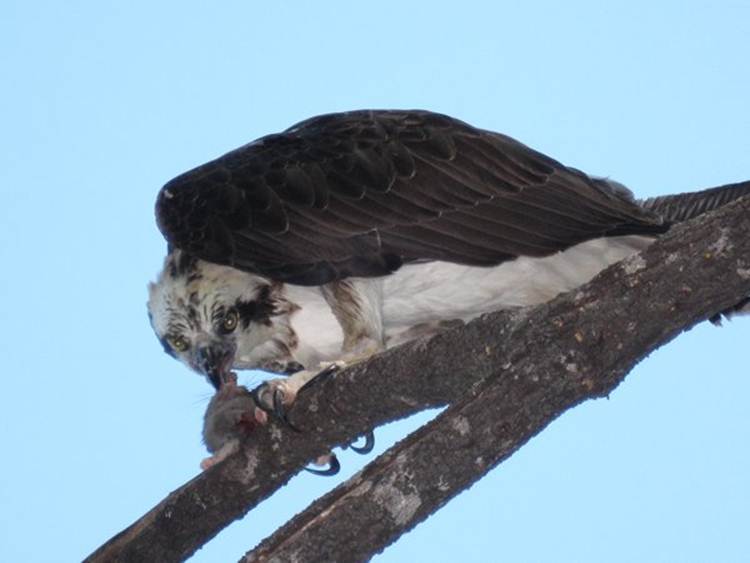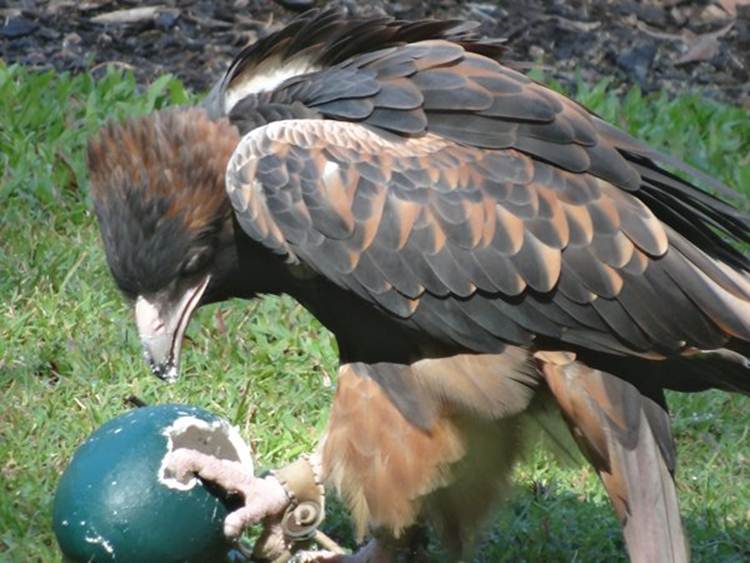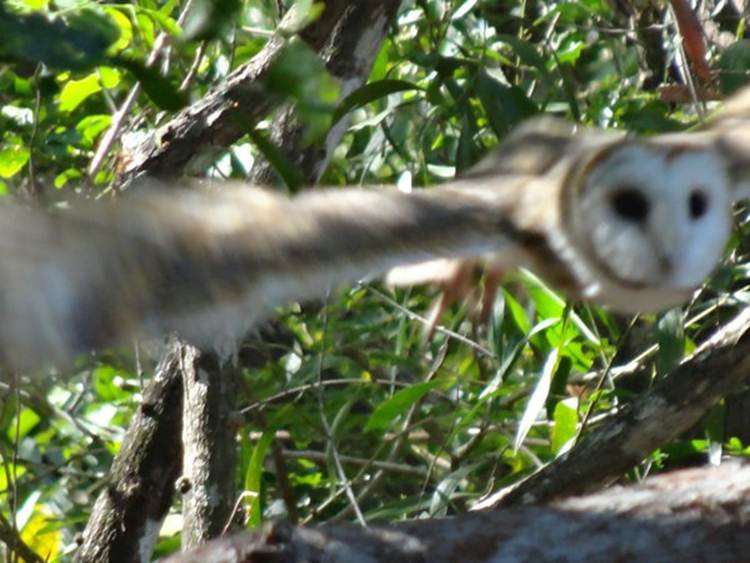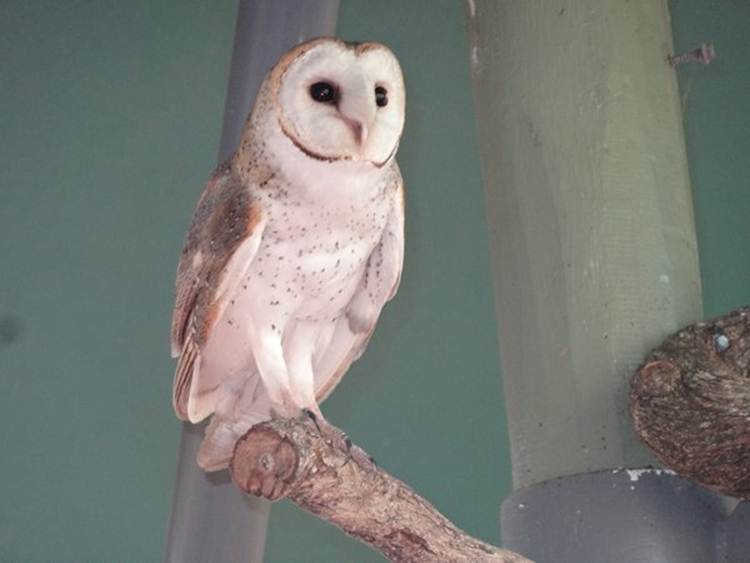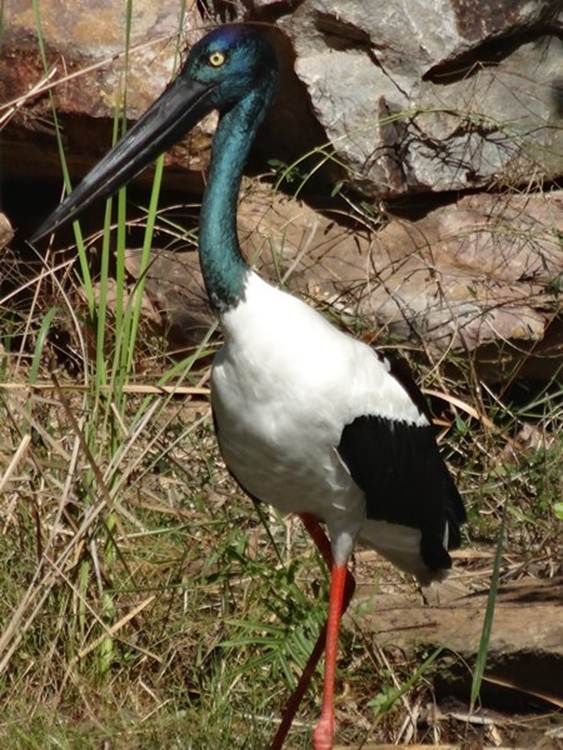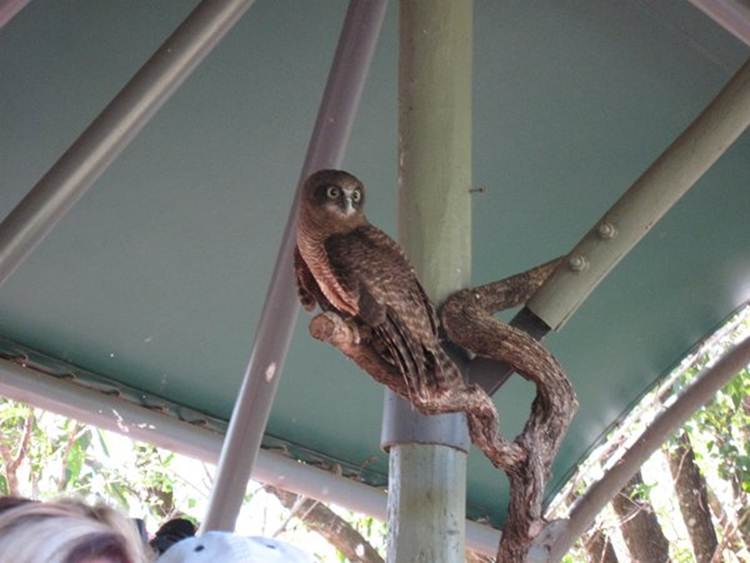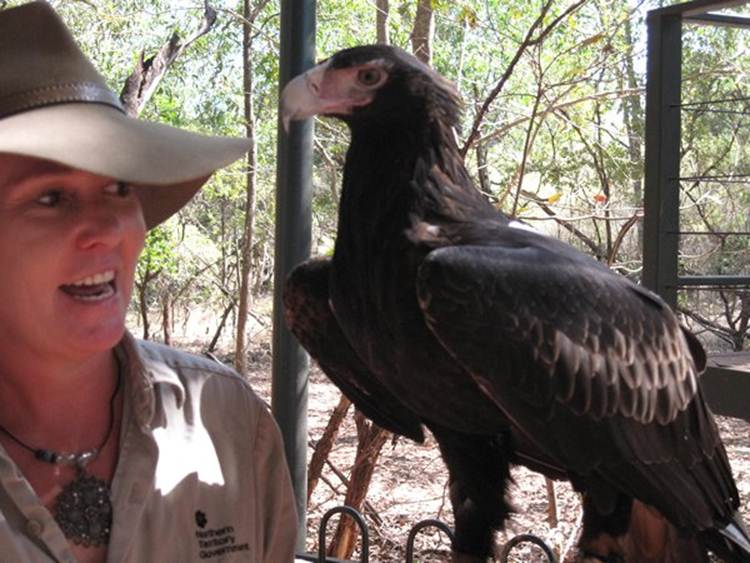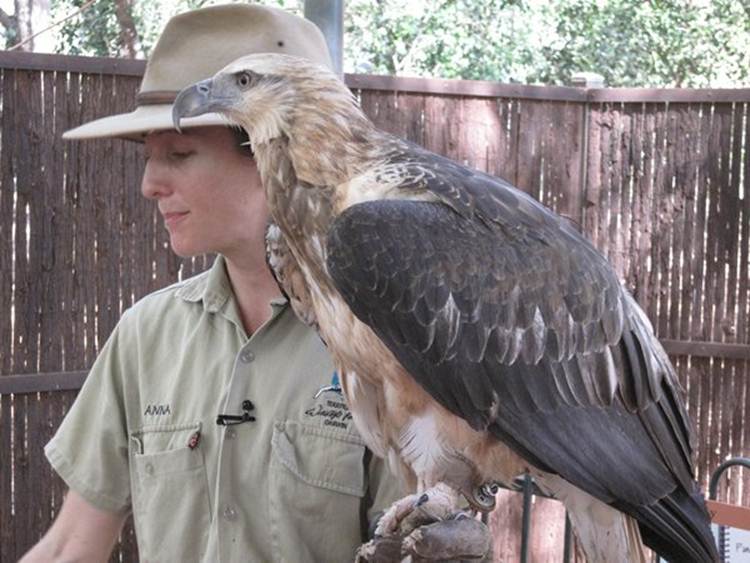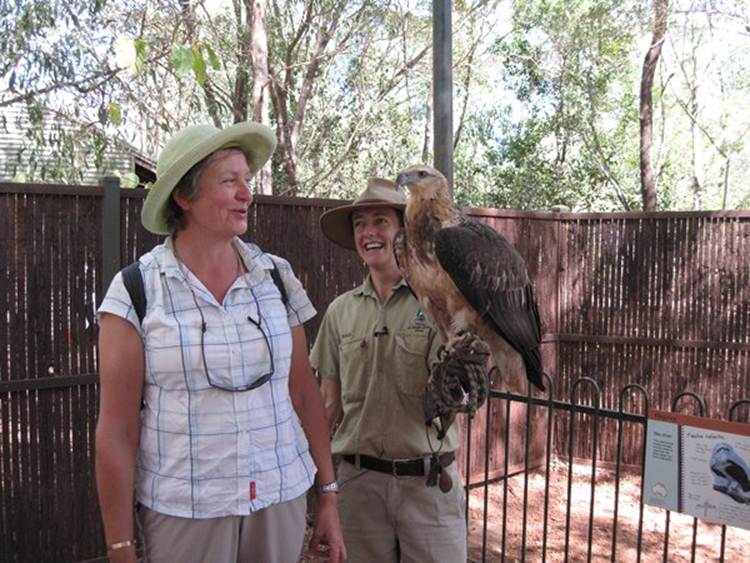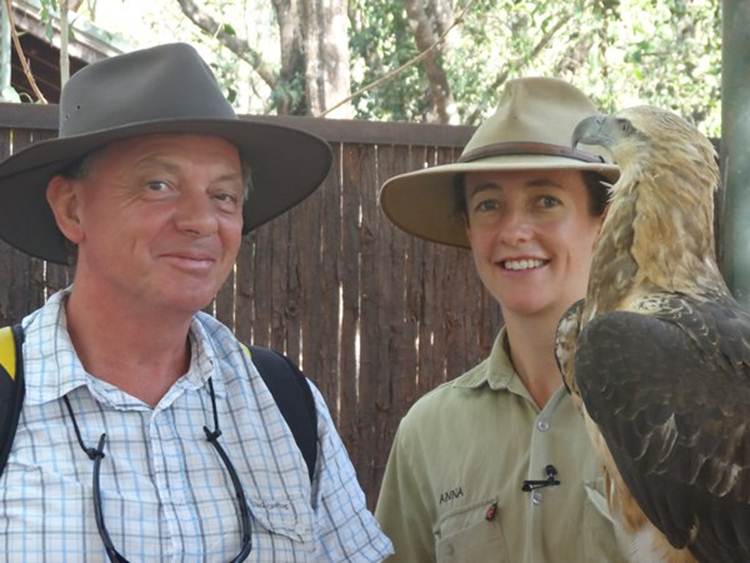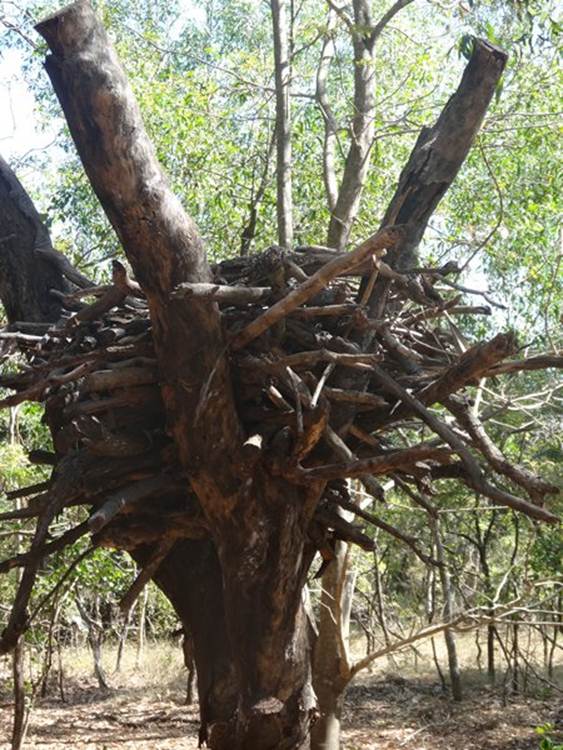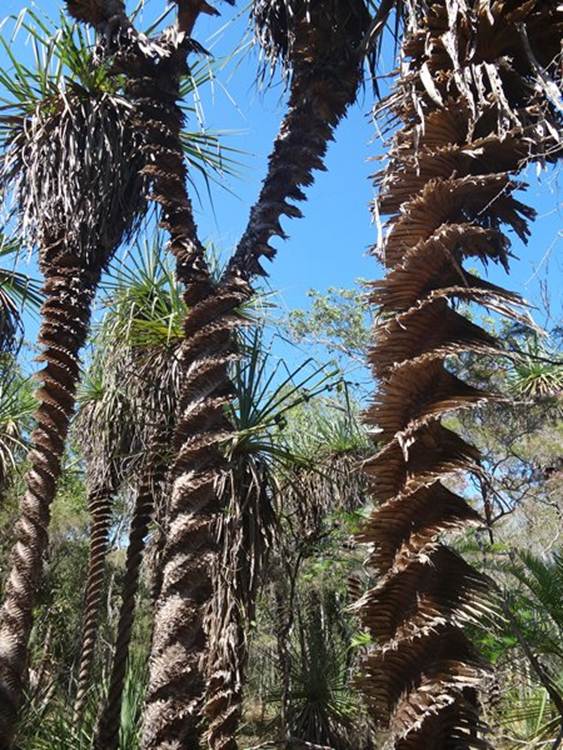Northern Territory Wildlife Park - 1

Not really worth the visit, unless into birds, and I’m getting into them. Lot of land set aside in the park but long walks between different areas. Really hot as well. Fortunately a bus runs between areas, so we bussed and walked. First stop was feeding the freshwater whipray (Himantura dalyensis), the only member of the ray family that can live in freshwater. These are found in most rivers that flow into the sea in the top end. The disc can be as much as 2m and they can weigh over 600kg. The whip tail is the most dangerous part with sharp barbs on. So advice is watch where you put your feet.
Some of the audience was invited to feed them, unfortunately I wasn’t close enough to get a place, unlike the Japanese – bit like the Germans!
This is the common archerfish (Toxotes chatareus). These spit a jet of water at their prey – such as a bug sitting on a branch. Pretty amazing feat, when you think about it, as water distorts the image. Natural selection has corrected for this distortion. I did manage to get a mealy worm with which to feed it. Horrible and the fish would play so dropped the worm in the water. We saw these fish in the wild in a marina in Darwin a couple of days later.
Next stop was the raptor display. This is an osprey (Pandion haliaetus), with that distinctive dark line going back from the eye. Apparently the only bird which will shield it’s catch in this way. Lot of people think it’s drying it’s wings. You can just make out fish it had caught on the RHS of the branch.
It was not too keen on returning to handler, so she gave it a mouse to munch on.
This is the black-breasted buzzard (Hamirostra melanosternon). It’s a notorious egg robber and the only raptor in Australia that will pick up rocks with its beak and drop then on the eggs to crack the shells. The ruffed up feathers on its head of distinctive.
Here’s a lovely barn owl (Tyto alba) in flight
And perched.
Great shot of a Jabiru (Ephippiorhynchus asiaticus).
This is the rufous owl (Ninox rufa) that flew off into the trees, got stuck there, then came back and perched up in the canopy not quite sure what to do.
These are a couple of eagles – look at the beaks on them. Apparently it’s the talons you have really got to worry about. This is a wedge tailed eagle (Aquila audax) – the largest Australian raptor. Very similar to the black-breasted buzzard but smaller. Their eyes have bony rings that squeeze and elongate the eyeball, like a telescope lens.
I think this might be a young bellied fish eagle.
Here’s me – not too sure and standing well clear.
And here’s Paul.
They build huge nests, usually on the top of cliffs, so they can see it easily as well as the surrounding countryside.
Great picture of the swirls that you get on some of the pandanus trees.
|
